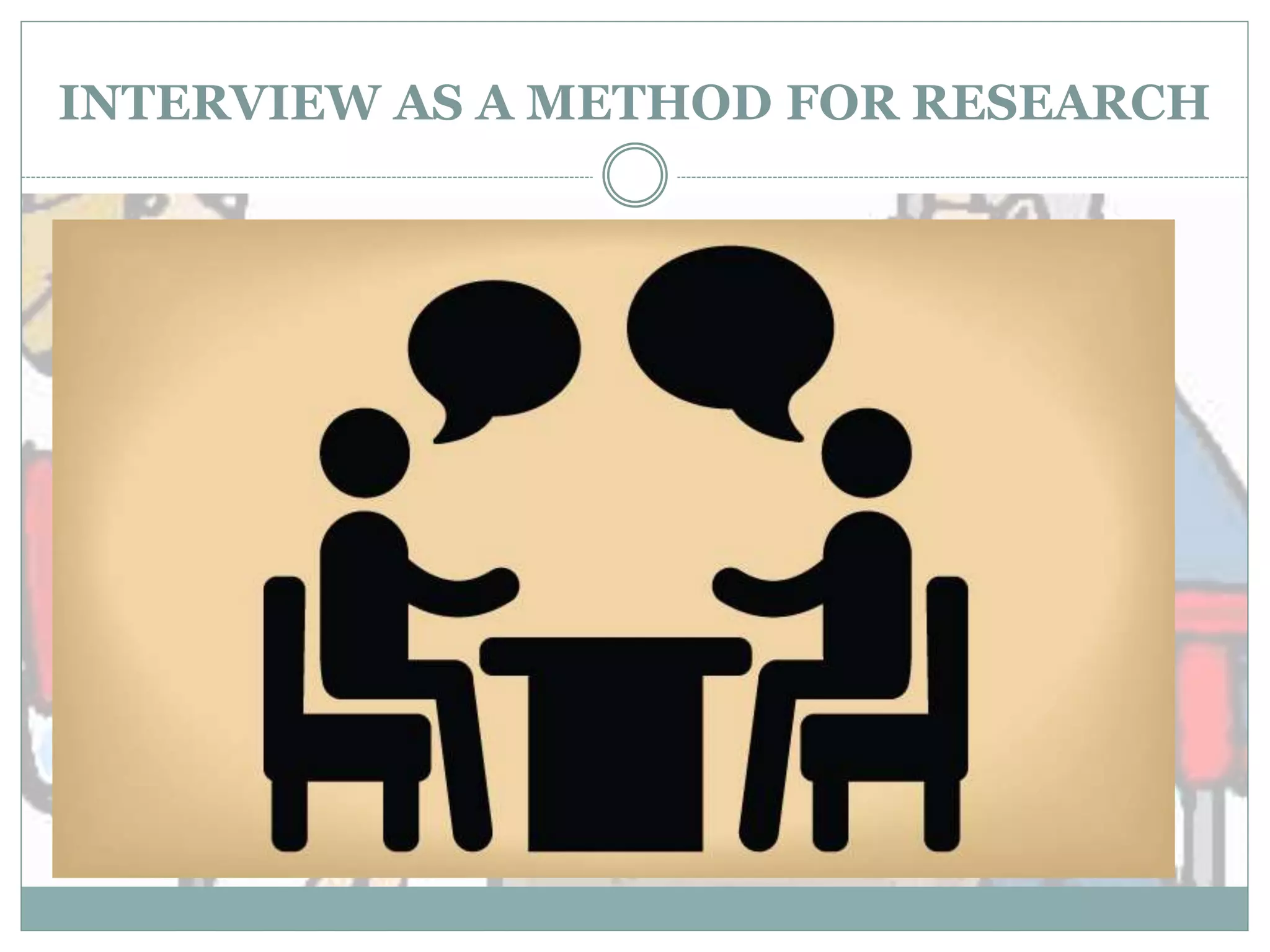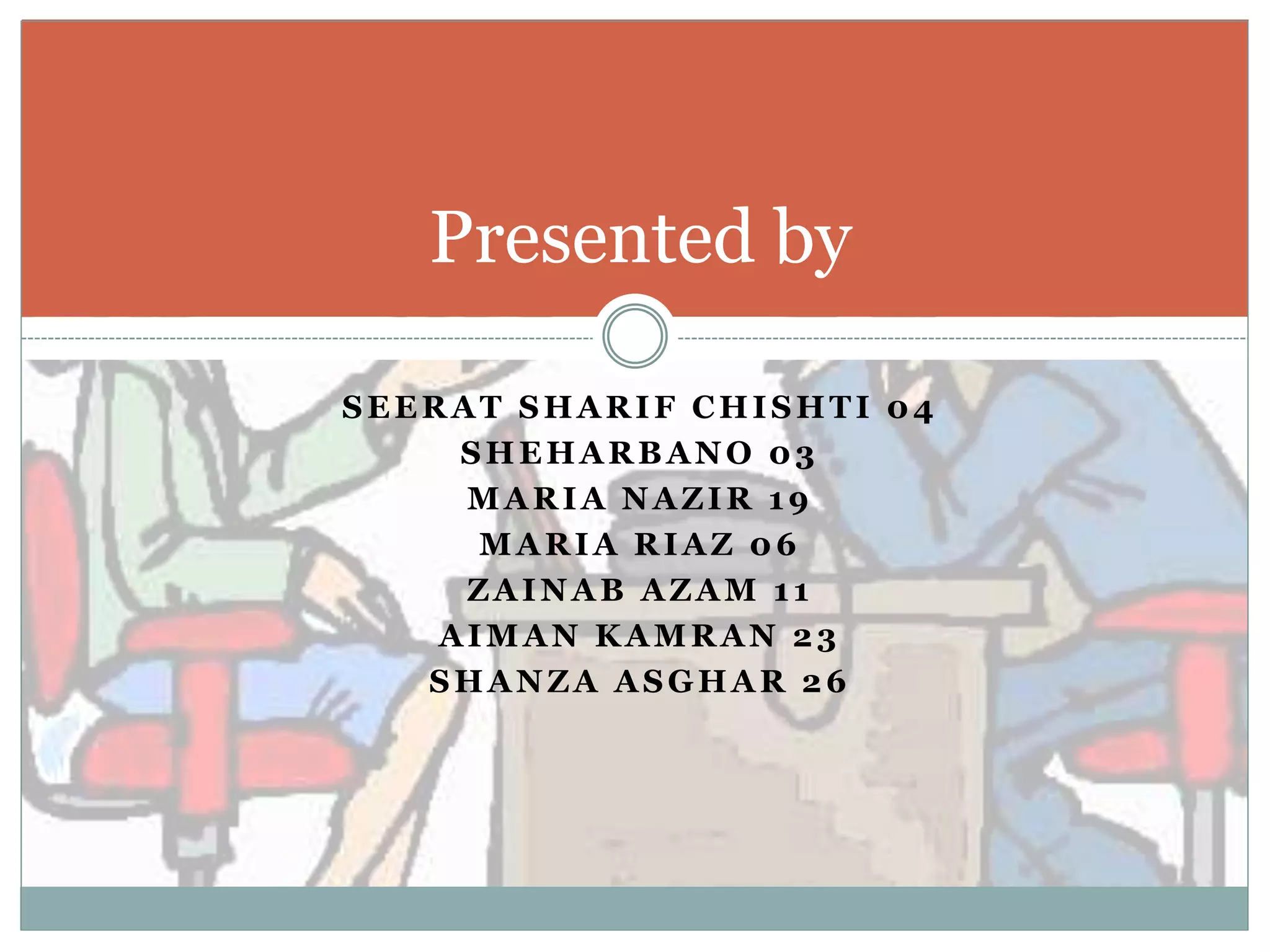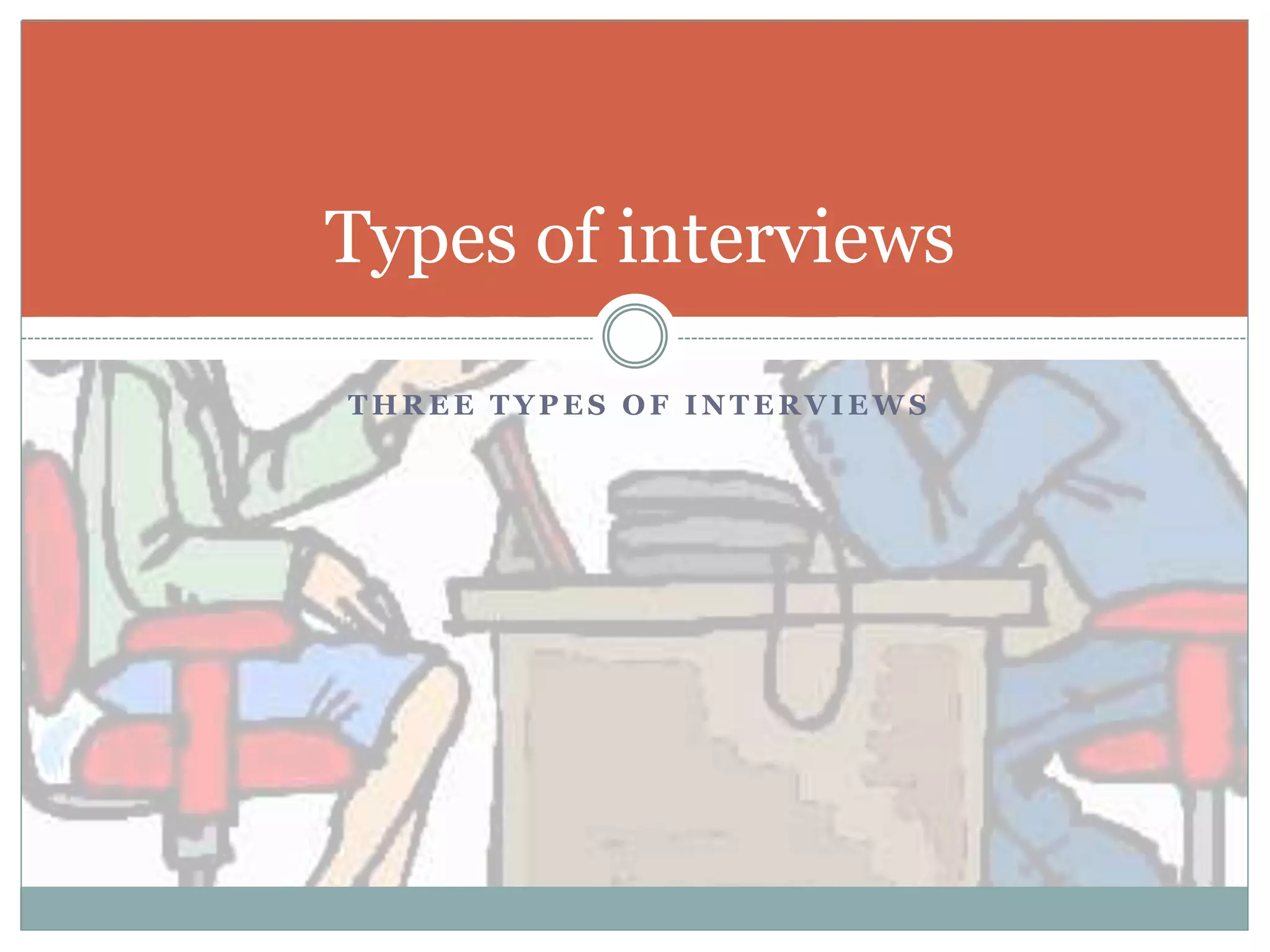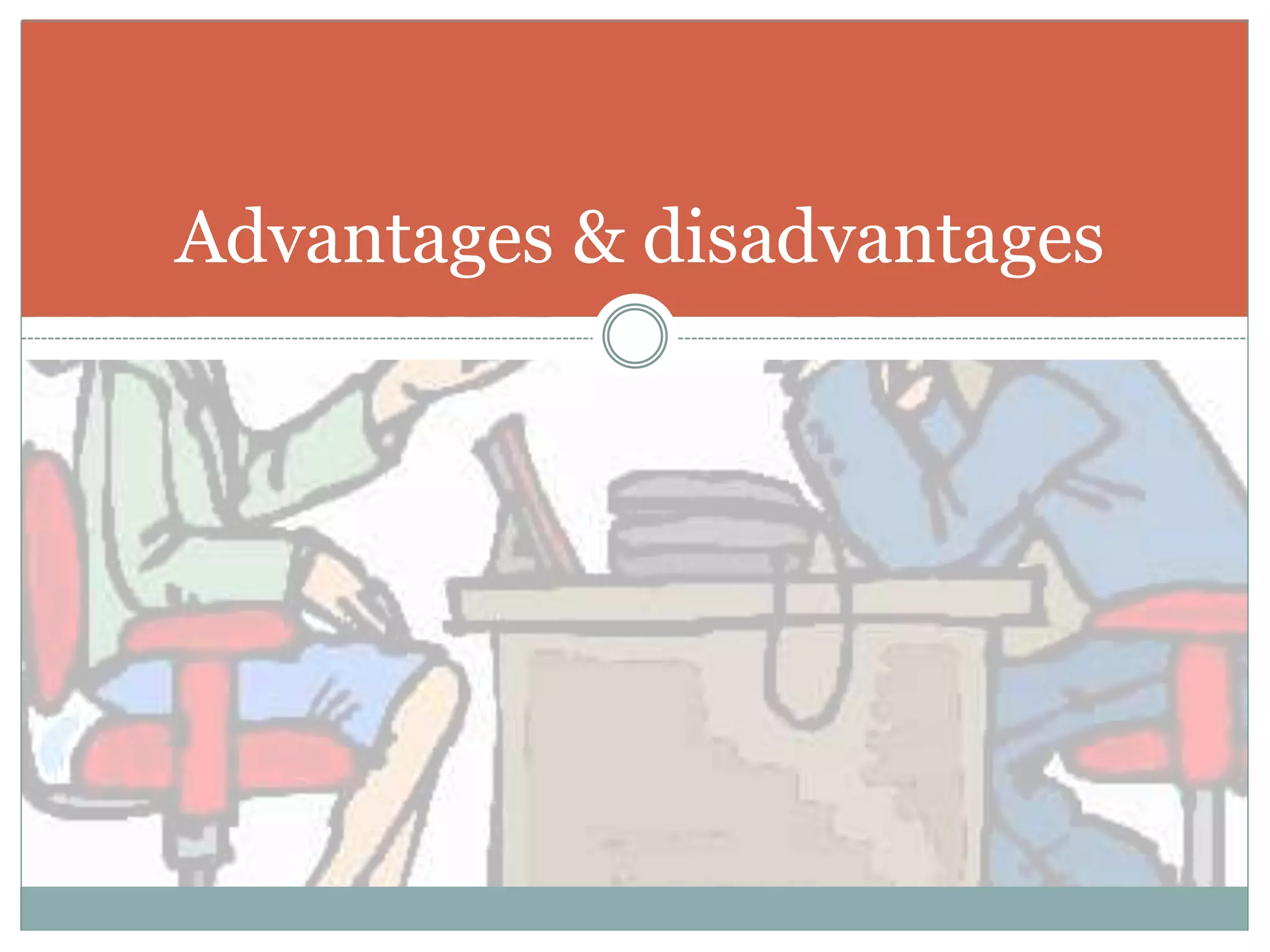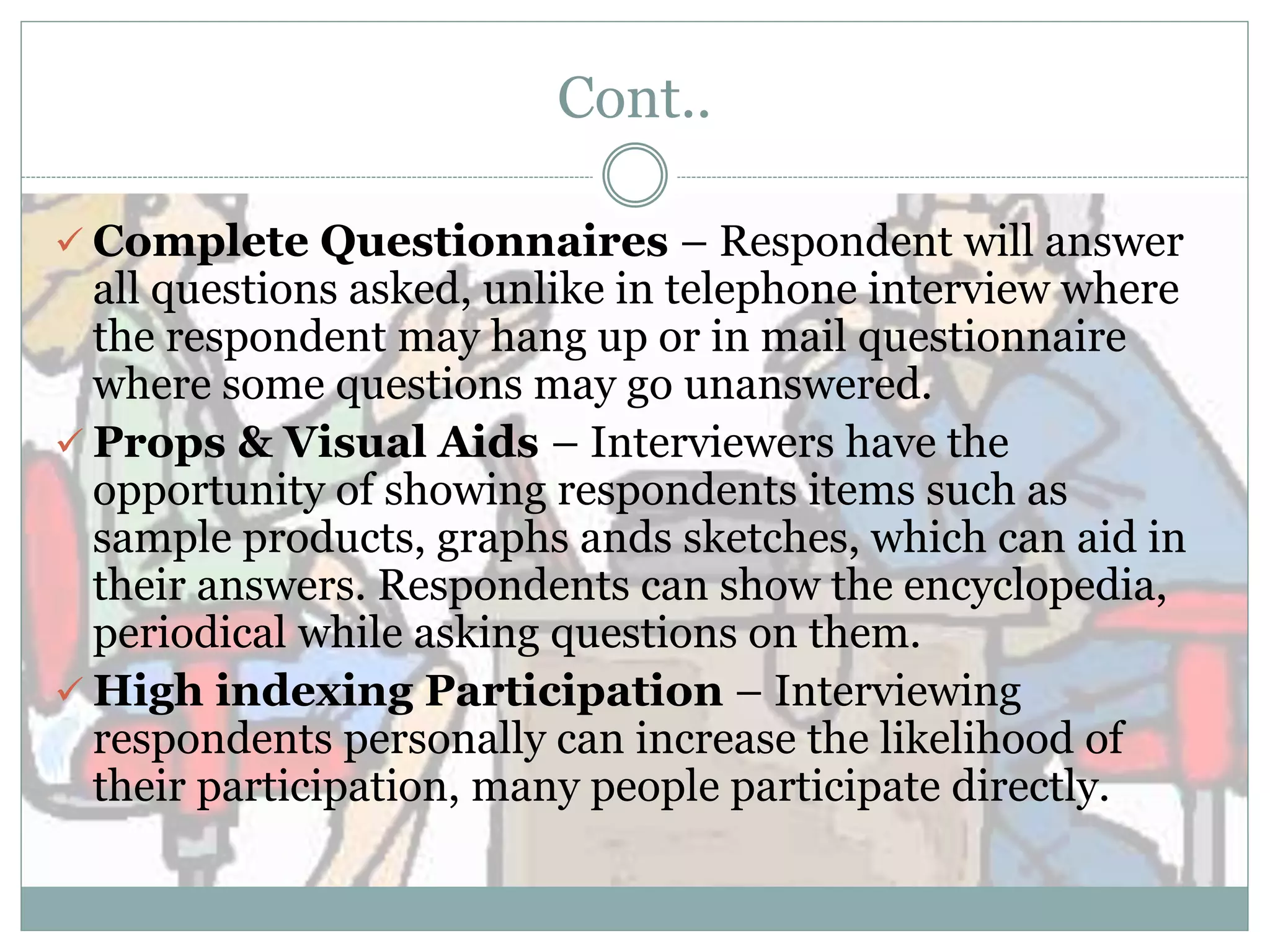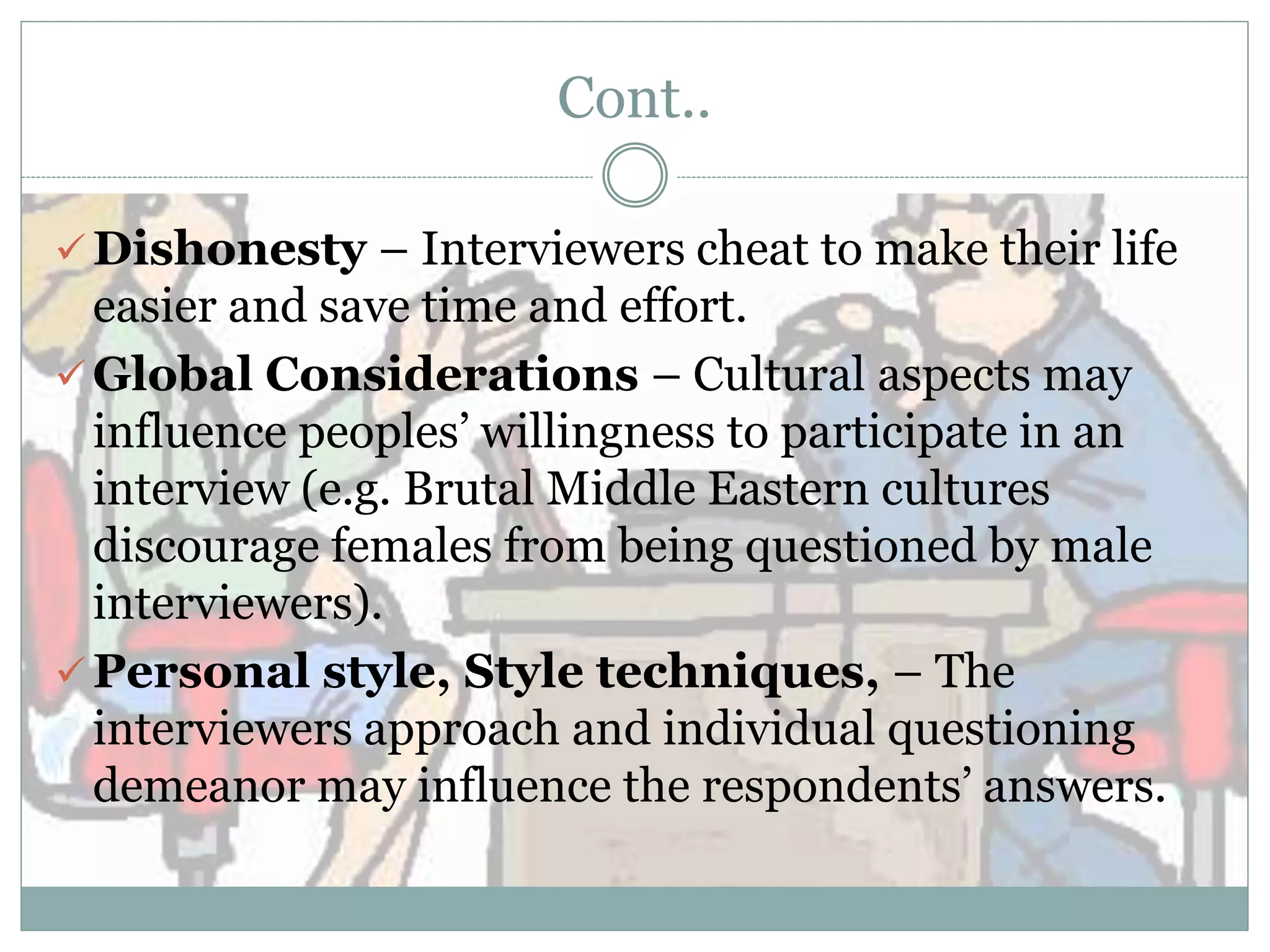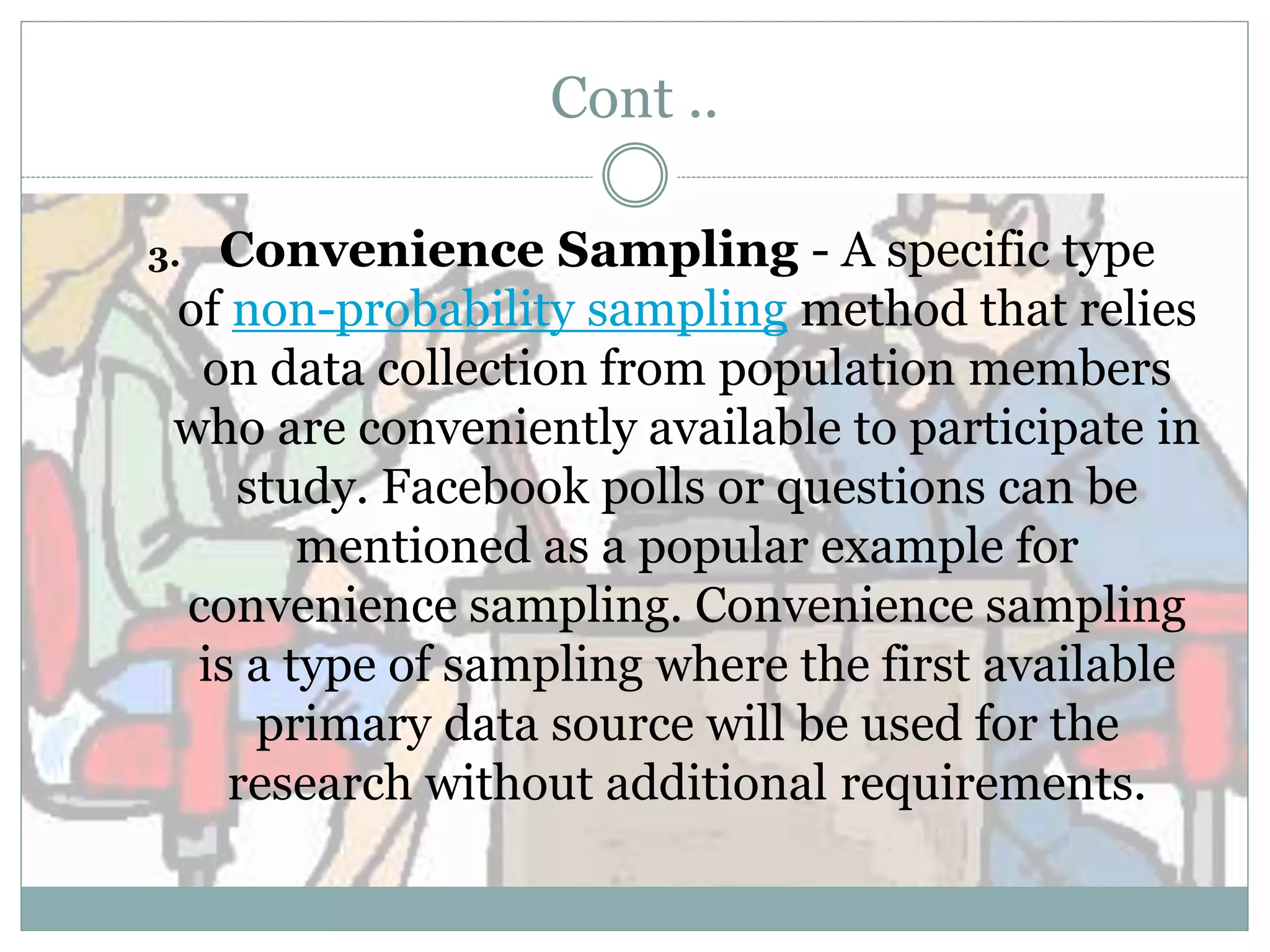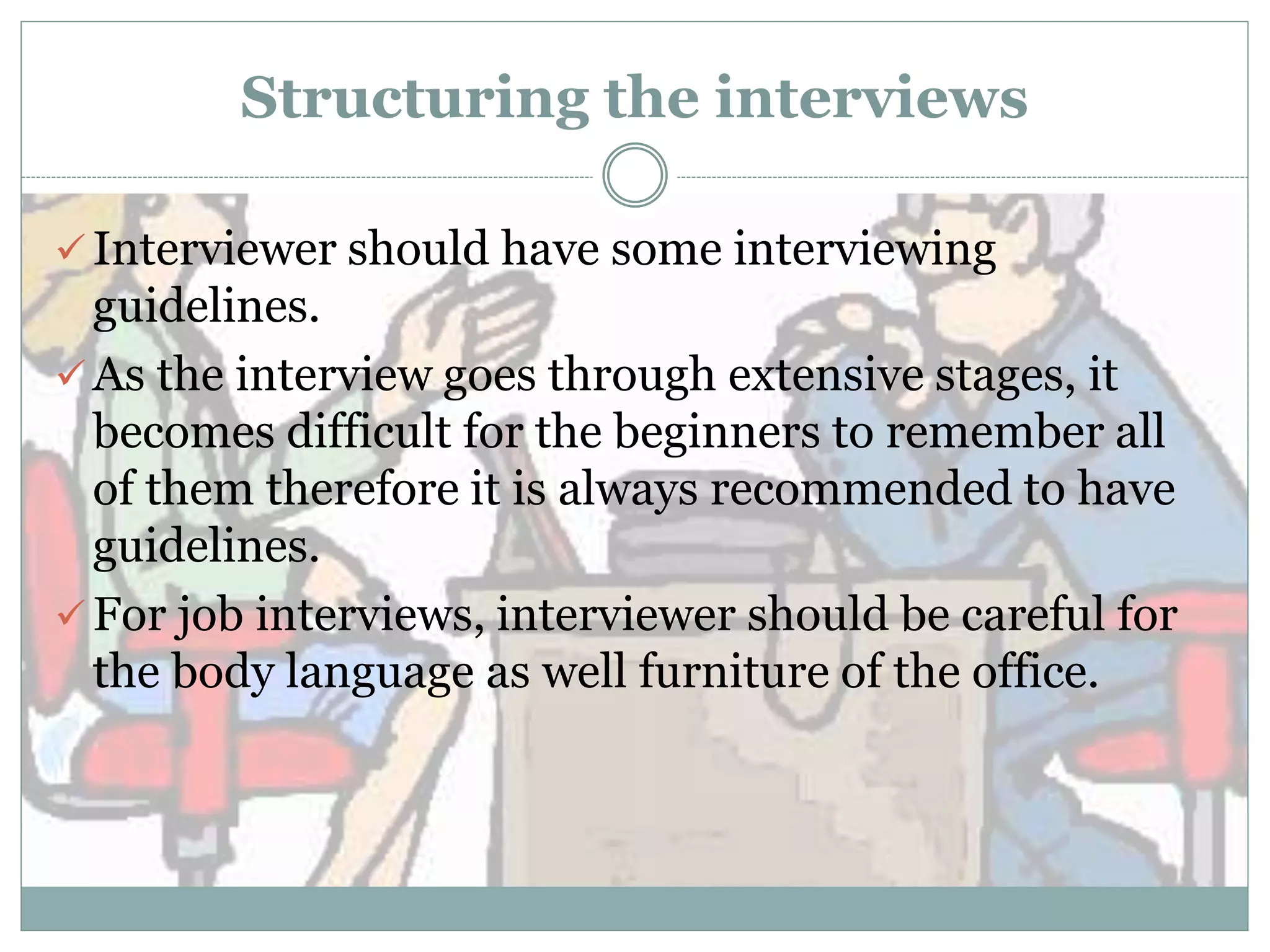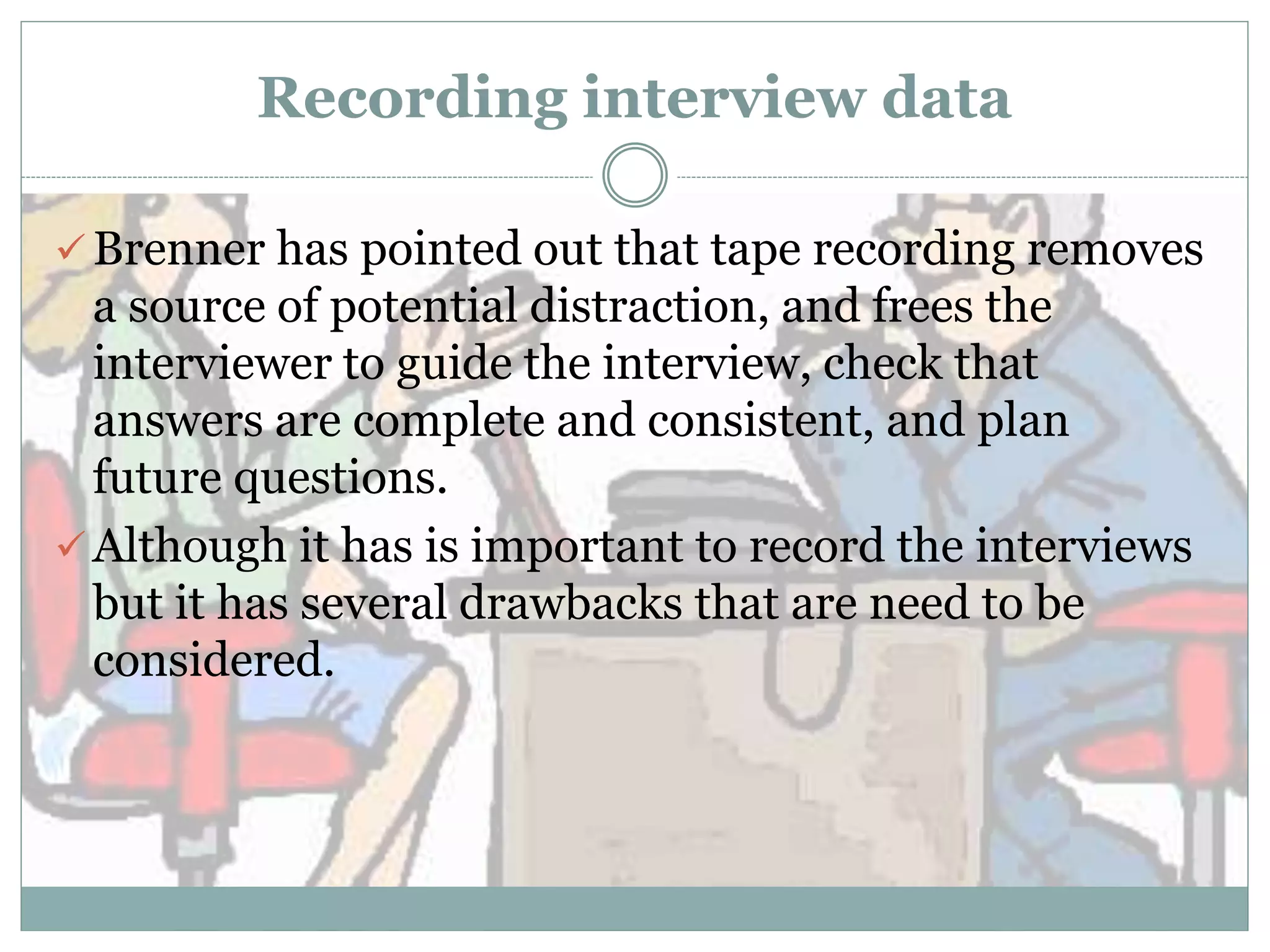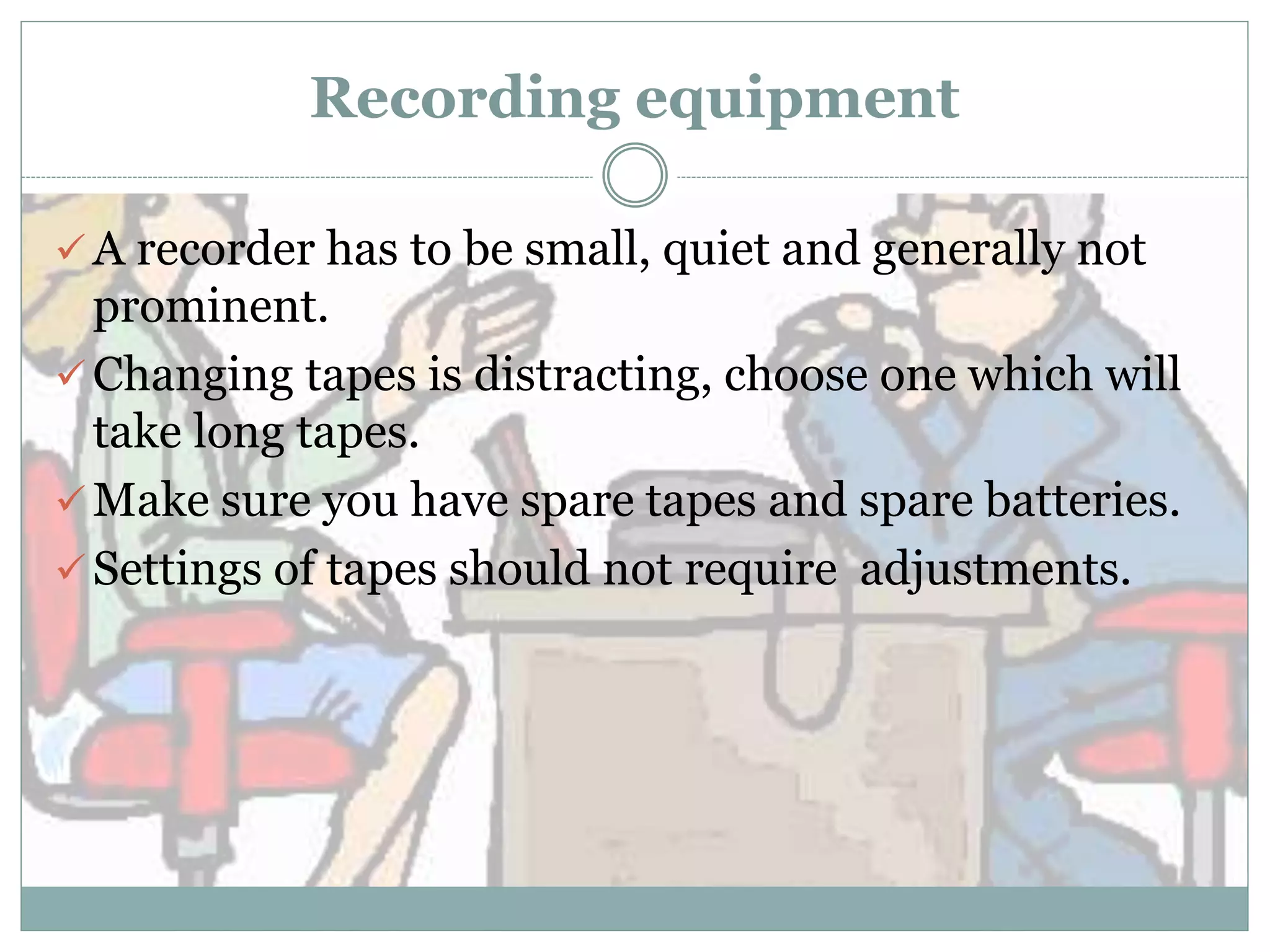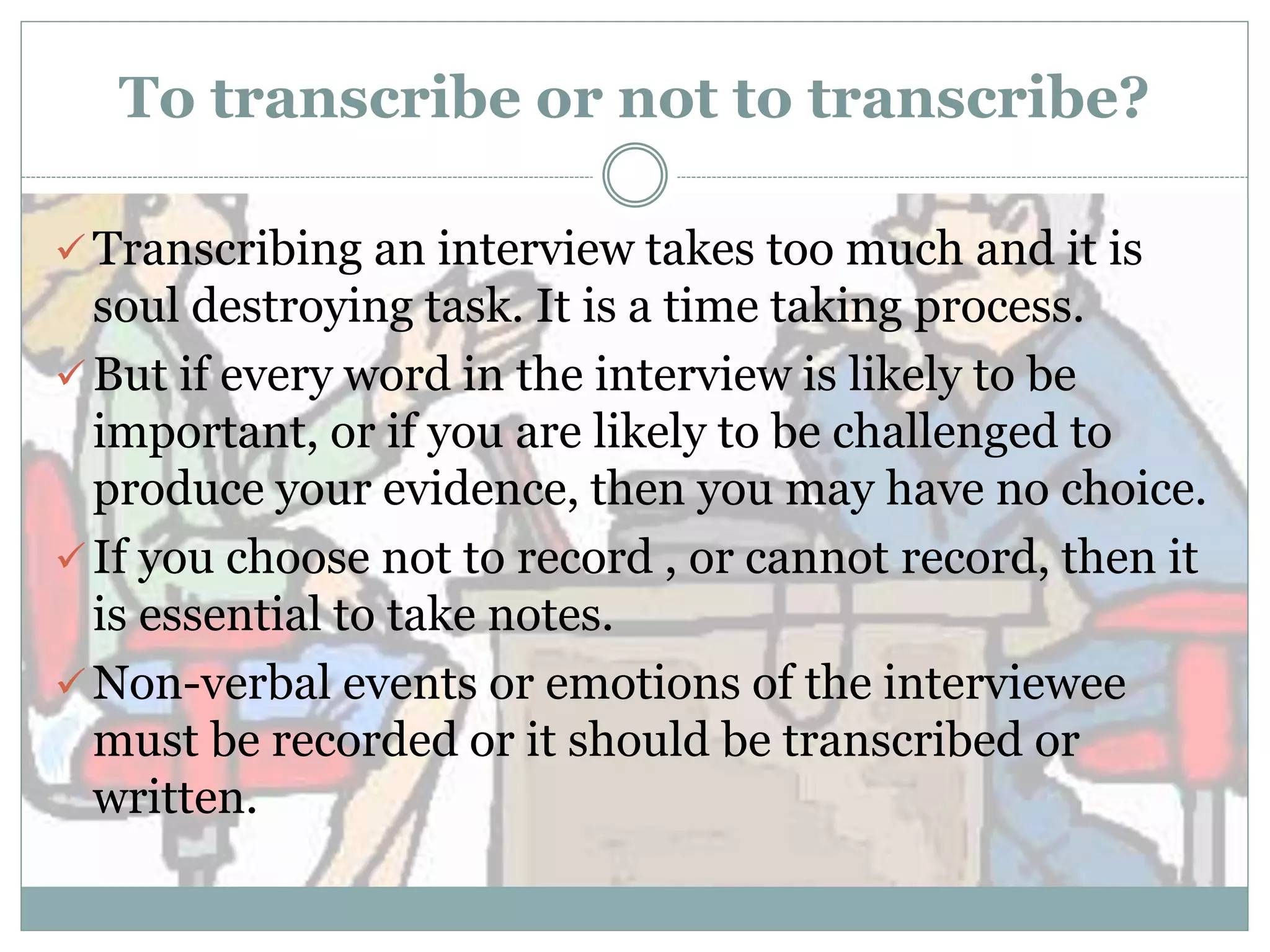This document discusses interview as a method for research. It defines interviews and describes three main types: structured, unstructured, and semi-structured. It outlines advantages like feedback and probing answers, and disadvantages like costs and lack of anonymity. Characteristics of interviewing covered include preparation, sampling techniques, structuring questions, and controlling the interview process. Qualities of a good interviewer and ensuring reliability and validity are also discussed. The document concludes with considerations for recording interviews like equipment and transcription, as well as record keeping.
